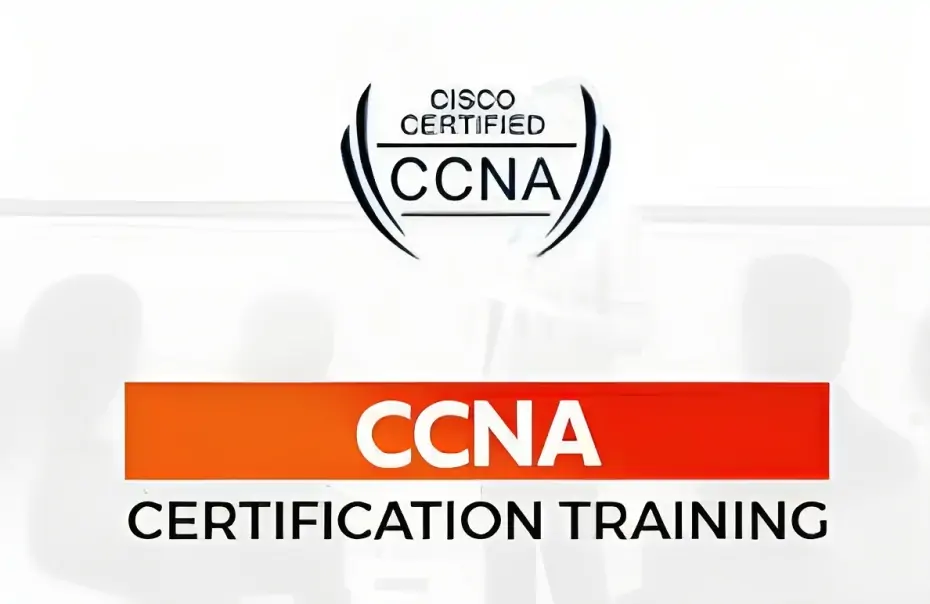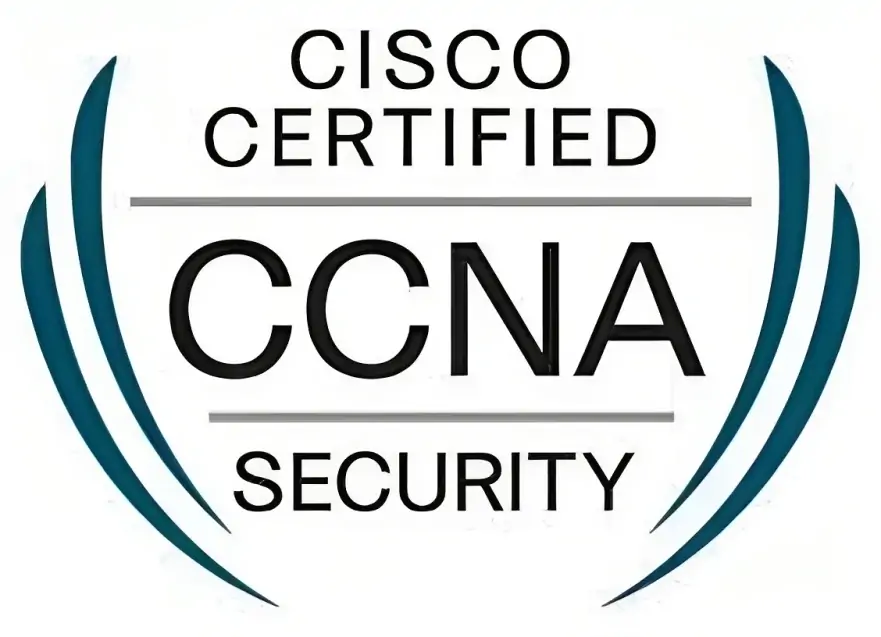Cisco Certified Network Associate, CCNA Certification is a globally recognized credential that validates expertise in networking fundamentals. It demonstrates proficiency in areas such as routing, switching, security, and troubleshooting.

Introduction:
In today’s fast-paced digital landscape, networking plays a pivotal role in connecting the world. From the smallest of businesses to the largest global enterprises, networks are the backbone of modern communication and data exchange. Cisco, a renowned name in the IT industry, offers the Cisco Certified Network Associate, CCNA Certification, a program that empowers individuals with the skills and knowledge required to design, implement, and manage complex networks. In this blog, we will explore the significance of CCNA Certification Training and how it can fast-track your career in the networking domain.
What is CCNA Certification?
CCNA, short for Cisco Certified Network Associate, is a globally recognized certification offered by Cisco Systems, Inc. It is designed to validate a candidate’s knowledge and skills in the field of networking. CCNA certification covers a wide range of networking topics, including but not limited to:
- Network Fundamentals: Understanding the basics of networking, including OSI model, TCP/IP protocols, and IP addressing.
- Network Access: Knowledge of Ethernet, VLANs, and wireless LANs.
- IP Connectivity: Routing and switching concepts, subnetting, and routing protocols like OSPF and EIGRP.
- IP Services: Understanding key network services like DHCP, NAT, and SNMP.
- Security Fundamentals: Basic network security concepts, including access control lists (ACLs) and VPNs.
- Automation and Programmability: Introduction to network automation using tools like Python and SDN (Software-Defined Networking).
Why Choose CCNA Certification?
So, why should you consider pursuing CCNA certification? Here are some compelling reasons:
Industry-Recognized: CCNA is widely recognized and respected in the IT industry. Having this certification on your resume can open doors to exciting job opportunities.
Skill Enhancement: CCNA training equips you with the knowledge and skills required to design, implement, and troubleshoot complex network infrastructures.
Career Advancement: CCNA certification can accelerate your career growth. It can lead to higher-paying roles, such as network administrator, network engineer, or IT manager.
Job Security: In an increasingly digital world, network professionals are in high demand. CCNA certification ensures that you remain a valuable asset to your organization.
CCNA Certification Training
Now that we understand the importance of CCNA certification, let’s delve into the specifics of CCNA Certification Training.
What is CCNA Certification Training?
CCNA Certification Training is a structured program that helps candidates prepare for the CCNA exam. This training covers the exam objectives comprehensively and provides hands-on experience with Cisco networking equipment and technologies. Here’s what you can expect from CCNA Certification Training:
In-Depth Curriculum: CCNA training programs cover all the topics and exam objectives in detail, ensuring that you have a strong grasp of networking concepts.
Hands-On Labs: Practical labs are an integral part of CCNA training. These labs allow you to apply your knowledge in real-world scenarios, configuring routers and switches and troubleshooting network issues.
Expert Instructors: CCNA training is typically delivered by certified Cisco instructors who have extensive experience in networking. They can provide valuable insights and guidance.
Study Materials: You will receive study materials, including textbooks, practice exams, and online resources, to aid in your preparation.
Flexibility: CCNA training programs are available in various formats, including in-person classes, virtual classrooms, and self-paced online courses. Choose the one that suits your learning style and schedule.
Benefits of CCNA Certification Training
CCNA Certification Training offers numerous benefits that can significantly impact your career. Let’s explore some of these advantages in detail:

1. Comprehensive Knowledge:
CCNA training ensures that you have a thorough understanding of networking concepts. You’ll be well-versed in areas such as IP addressing, routing and switching, network security, and more.
2. Hands-On Experience:
Hands-on labs are a crucial part of CCNA training. They provide you with practical experience in configuring and troubleshooting Cisco devices. This practical knowledge is invaluable in the real world.
3. Career Advancement:
CCNA certification can open doors to better job opportunities and higher-paying positions. It’s a recognized credential that showcases your expertise in networking.
4. Confidence:
Through rigorous training and preparation, you’ll gain the confidence to tackle complex networking challenges. This confidence will serve you well in your career.
5. Networking Community:
Joining the ranks of Cisco-certified professionals means becoming part of a vast networking community. You can connect with peers, share knowledge, and stay updated on industry trends.
CCNA Exam Understanding the CCNA :
After completing your CCNA Certification Training, the next step is to prepare for and pass the CCNA exam. This exam is the culmination of your training and serves as the official validation of your networking skills. Here’s what you need to know about the CCNA exam:
Exam Format:
- The CCNA exam typically consists of multiple-choice questions, drag-and-drop questions, and simulation-based questions.
- The duration of the exam is usually 90 minutes.
- Cisco periodically updates the exam content to reflect the latest industry trends and technologies, so it’s essential to stay up-to-date with the latest exam objectives.
Exam Topics:
The CCNA exam covers a wide range of topics, including but not limited to:
- Network fundamentals
- Network access
- IP connectivity
- IP services
- Security fundamentals
- Automation and programmability
Study Tips for the CCNA Exam:
- Review your training materials thoroughly.
- Take practice exams to gauge your readiness.
- Create a study schedule to manage your time effectively.
- Join online forums or study groups to discuss exam topics and share insights with fellow candidates.
- Stay calm and focused on exam day, and remember to read each question carefully before answering.
Continuing Education and Career Growth
Passing the CCNA exam is a significant achievement, but your journey in the world of networking doesn’t end there. Cisco offers a variety of advanced certifications that allow you to specialize in specific areas of networking, such as:
CCNP (Cisco Certified Network Professional): This certification builds upon CCNA knowledge and covers more advanced topics, including routing and switching, wireless networking, and network security.
CCIE (Cisco Certified Internetwork Expert): CCIE is one of the most prestigious certifications in the networking industry. It is designed for experts who want to master the most complex networking challenges.
CCNA Specializations: Cisco offers specialized CCNA certifications in areas like security, cloud, and collaboration. These certifications allow you to focus on a specific aspect of networking.
Continuing your education by pursuing advanced certifications can lead to even more exciting career opportunities and increased earning potential.
BlueMorpho – Your CCNA Training Partner
At BlueMorpho Learning Solutions, we are committed to helping individuals like you embark on a rewarding journey in the field of networking through our CCNA Certification training programs. Here’s why you should choose us as your training partner:

1. Expert Instructors:
Our certified Cisco instructors bring years of industry experience to the classroom. They are passionate about teaching and are dedicated to helping you succeed.
2. Comprehensive Curriculum:
Our CCNA training programs cover all exam objectives in-depth, ensuring that you have a strong foundation in networking concepts.
3. Hands-On Labs:
We believe in the power of hands-on learning. Our labs provide you with practical experience in configuring and troubleshooting Cisco devices.
4. Flexible Learning Options:
We understand that everyone has different learning preferences and schedules. That’s why we offer a variety of learning options, including in-person classes, virtual classrooms, and self-paced online courses.
5. Continuous Support:
Our commitment to your success doesn’t end with the training program. We provide ongoing support, study materials, and resources to help you prepare for the CCNA exam.
6. Affordable Pricing:
We believe that high-quality training should be accessible to all. Our pricing is competitive, making it easier for you to invest in your career.
7. Career Guidance:
Our team can provide guidance on career paths, specialization options, and opportunities for growth in the networking field.
Navigating the CCNA Certification Journey
Once you’ve decided to pursue Cisco Certified Network Associate, CCNA Certification Training through BlueMorpho, it’s essential to have a clear roadmap for your certification journey. Here’s a step-by-step guide on how to navigate this journey effectively:
1: Set Your Goals
Before you begin your CCNA certification journey, define your goals. What do you hope to achieve with this certification? Are you looking to start a career in networking, advance in your current role, or transition into a new role? Setting clear goals will help you stay motivated throughout your training.
2: Choose the Right CCNA Training Program
BlueMorpho offers various CCNA training programs to suit different learning preferences and schedules. Whether you prefer in-person classes, virtual classrooms, or self-paced online courses, choose the program that aligns with your needs and goals.
3: Enroll in CCNA Training
Once you’ve selected your preferred training program, enroll in the CCNA Certification Training offered by BlueMorpho Learning Solutions. Our team will guide you through the registration process and provide you with the necessary course materials.
4: Attend Classes and Labs
If you’ve chosen in-person or virtual classroom training, attend your scheduled classes and labs. These hands-on sessions are crucial for gaining practical experience with Cisco devices and technologies. Be an active participant in your learning, ask questions, and engage with your instructors and peers.
5: Study and Review
Complement your classroom and lab sessions with self-study. Review your course materials, practice with labs, and use additional resources such as Cisco documentation, books, and online tutorials to reinforce your knowledge.
6: Take Practice Exams
Practice exams are an excellent way to gauge your readiness for the CCNA certification exam. BlueMorpho provides practice exams that mimic the format and difficulty level of the actual exam. Use these exams to identify areas where you may need additional study.
7: Exam Registration
When you feel confident in your knowledge and skills, register for the CCNA certification exam through Cisco’s official certification website. Pay attention to the exam policies, including scheduling, fees, and identification requirements.
8: Exam Day Preparation
On the day of the exam, ensure that you are well-rested and have all necessary identification documents. Arrive at the exam center with plenty of time to spare. Relax, stay focused, and trust in your preparation.
9: Take the CCNA Exam
During the exam, read each question carefully and manage your time wisely. Don’t rush through questions; take your time to answer accurately. If you encounter simulation-based questions, apply the practical knowledge you gained from your training.
10: Celebrate Your Achievement
After completing the CCNA exam, you’ll receive your results. If you pass, congratulations! You’ve achieved a significant milestone in your networking career. If not, don’t be discouraged. Review your performance and areas where you need improvement, and consider retaking the exam after further study.
11: Consider Advanced Certifications
Once you’ve earned your CCNA certification, think about your long-term career goals. Cisco offers a range of advanced certifications, including CCNP and CCIE, which can help you specialize and advance in your networking career.
12: Stay Updated
The world of networking is constantly evolving, with new technologies and trends emerging regularly. Stay updated by attending seminars, workshops, and advanced training courses to ensure that your skills remain relevant.
The Value of CCNA Certification
As you embark on your Cisco Certified Network Associate, CCNA certification journey with BlueMorpho, it’s crucial to understand the tangible and intangible value that this certification brings to your career. Let’s explore why CCNA certification is highly regarded in the IT industry and how it can benefit you.

Industry Recognition
CCNA certification is globally recognized as a mark of proficiency in networking. Cisco is a leading provider of networking solutions worldwide, and its certifications hold a strong reputation. When employers see CCNA on your resume, they immediately recognize your competence and commitment to the field.
Competitive Advantage
In today’s competitive job market, having a CCNA certification sets you apart from other candidates. It demonstrates to potential employers that you have the skills and knowledge necessary to excel in networking roles. This competitive advantage can be the key to landing your dream job or advancing in your current one.
Career Advancement
CCNA certification paves the way for career advancement. It opens doors to higher-paying positions, such as network administrator, network engineer, or even IT manager. With CCNA in hand, you’re better positioned to negotiate a higher salary and take on more significant responsibilities.
Skill Enhancement
Throughout your CCNA certification training, you’ll gain a deep understanding of networking concepts, routing and switching, security, and more. This knowledge is not only valuable for certification but also for practical application in your job. You’ll become a more competent and effective network professional.
Increased Earning Potential
CCNA-certified professionals often earn higher salaries than their non-certified counterparts. Employers are willing to pay a premium for individuals with the expertise to manage and maintain their network infrastructure effectively. CCNA certification can significantly impact your earning potential.
Job Security
In an increasingly digitized world, networks are the lifeblood of organizations. Companies rely on network professionals to keep their systems running smoothly and securely. CCNA certification makes you a valuable asset, enhancing your job security even in challenging economic times.
Networking Community
Becoming CCNA-certified also means joining a vast networking community. You’ll have the opportunity to connect with peers, share knowledge, and stay updated on industry trends. Networking with other professionals can lead to valuable career opportunities and collaborations.
Continuous Learning
The IT industry is dynamic, with new technologies and trends emerging regularly. Cisco keeps its certifications relevant by updating exam objectives to reflect the latest developments. As a CCNA-certified professional, you’ll be encouraged to engage in continuous learning to stay ahead in your career.
Tips for Success in CCNA Certification
Now that you’re committed to pursuing Cisco Certified Network Associate, CCNA certification with BlueMorpho, it’s essential to set yourself up for success. The journey to becoming a certified networking expert may be challenging, but with the right approach and dedication, you can achieve your goals. Here are some tips to help you succeed in your CCNA certification journey:
1. Establish a Study Routine
Consistency is key to mastering the CCNA material. Create a study schedule that suits your daily routine. Allocate dedicated time for studying, practice labs, and reviewing course materials. Sticking to a routine ensures that you cover all the necessary topics and stay on track.
2. Engage Actively in Training
Whether you’re attending in-person classes, virtual classrooms, or self-paced online courses, make the most of your training. Actively engage with your instructors, ask questions, and participate in discussions. Hands-on labs are invaluable, so immerse yourself in practical exercises to solidify your skills.
3. Use Multiple Resources
While BlueMorpho provides comprehensive training materials, don’t limit yourself to a single source. Explore additional resources such as Cisco’s official documentation, textbooks, video tutorials, and online forums. Diverse learning materials can provide different perspectives and enhance your understanding.
4. Practice, Practice and Practice
Networking is a practical field, and hands-on experience is crucial. Utilize the labs provided during your training extensively. Experiment with different configurations, troubleshoot issues, and gain confidence in your abilities. The more you practice, the more comfortable you’ll become with networking concepts.
5. Take Practice Exams
BlueMorpho Learning Solutions offers practice exams that mimic the format and difficulty of the CCNA certification exam. Regularly take these practice exams to assess your knowledge and identify areas that require further study. Use your performance on these exams as a gauge of your readiness.
6. Join Study Groups
Consider joining study groups or online forums where CCNA candidates discuss exam topics and share insights. Collaborating with peers can provide valuable perspectives and help reinforce your understanding of complex concepts. It’s also an opportunity to ask questions and seek clarification on challenging topics.
7. Stay Informed and Updated
The IT industry evolves rapidly, and networking technologies continually advance. Stay informed about the latest trends, updates, and best practices in the field. Subscribe to industry news, follow Cisco’s announcements, and read blogs or articles written by networking professionals.
8. Manage Exam Anxiety
As the CCNA exam day approaches, it’s natural to feel a bit nervous. To manage exam anxiety, practice relaxation techniques, get a good night’s sleep before the exam, and arrive at the testing center early. Remember that you’ve prepared diligently, and you are capable of succeeding.
9. Review and Reinforce Weak Areas
After taking practice exams, focus on the topics where you scored lower. Review these areas thoroughly, seek additional resources if needed, and practice related scenarios. Strengthening your weaknesses is essential for achieving a well-rounded understanding.
10. Stay Determined
Throughout your CCNA certification journey, stay determined and focused on your goals. It’s normal to encounter challenges and setbacks, but perseverance is key. Keep your end goal in mind, and remind yourself of the career opportunities and personal growth that CCNA certification can bring.
Post – CCNA Certification Opportunities
Congratulations on successfully completing your Cisco Certified Network Associate, CCNA certification journey with BlueMorpho! As you celebrate this significant achievement, it’s time to explore the many opportunities that await you in the world of networking. In this chapter, we’ll discuss the various avenues that open up after earning your CCNA certification.

1. Network Administrator
With your CCNA certification, you’re well-prepared for a role as a network administrator. Network administrators are responsible for configuring, maintaining, and troubleshooting network infrastructure. You’ll work with routers, switches, firewalls, and other networking devices to ensure that data flows seamlessly within an organization.
2. Network Engineer
Network engineers design, implement, and optimize network architectures to meet specific business requirements. They play a crucial role in planning and scaling network infrastructure. A CCNA certification is an excellent foundation for pursuing a career as a network engineer.
3. IT Support Specialist
Many IT support roles require a solid understanding of networking concepts. CCNA certification demonstrates your ability to troubleshoot network issues effectively. As an IT support specialist, you’ll provide technical assistance to users, resolve hardware and software problems, and ensure network connectivity.
4. Systems Administrator
Systems administrators are responsible for managing an organization’s servers and ensuring that systems are running smoothly. A strong grasp of networking principles, which you gain through CCNA training, is invaluable in this role, as it helps you optimize server communication and security.
5. Network Security Analyst
As cyber threats become increasingly sophisticated, the demand for network security professionals continues to grow. A CCNA certification is an excellent starting point for a career in network security. You’ll focus on securing network infrastructure, implementing firewalls, and monitoring for security breaches.
6. Cloud Networking Specialist
The Cloud computing is now a fundamental part of IT infrastructure. Cloud networking specialists design and manage network connections between on-premises systems and cloud services. Your CCNA knowledge can be a valuable asset in this field, especially as cloud networks rely on robust connectivity.
7. Wireless Networking Specialist
Wireless networks are ubiquitous in today’s world. CCNA certification includes coverage of wireless LANs, making you a suitable candidate for roles as a wireless networking specialist. You’ll work on designing, implementing, and securing wireless networks.
8. Voice and Video Networking Specialist
Voice and video communication over IP networks is a critical aspect of modern business operations. CCNA training covers voice and video networking, allowing you to specialize in this area. You’ll focus on technologies like Voice over IP (VoIP) and video conferencing.
9. Further (CCNA) Cisco Certifications
CCNA is just the beginning of Cisco’s certification pathway. You can continue your professional development by pursuing advanced Cisco certifications such as CCNP (Cisco Certified Network Professional) or CCIE (Cisco Certified Inter-network Expert) in your chosen specialization.
10. Entrepreneurship
If you have an entrepreneurial spirit, your CCNA certification can serve as a solid foundation for starting your own networking consulting or managed services business. Small and medium-sized businesses often require networking expertise but may not have the resources for a full-time IT staff.
Continuing Your Professional Development
Earning your Cisco Certified Network Associate, CCNA certification is a significant milestone in your networking career, but it’s important to remember that the world of technology is constantly evolving. To stay competitive and advance further, you’ll need to continue your professional development. In this chapter, we’ll explore how to keep your skills up-to-date and continue growing as a networking professional.

1. Pursue Advanced Cisco Certifications
One of the most effective ways to advance your career in networking is to pursue advanced Cisco certifications. After earning your CCNA, consider the following options:
CCNP (Cisco Certified Network Professional): This certification builds upon CCNA knowledge and covers more advanced topics, including routing and switching, wireless networking, and network security.
CCIE (Cisco Certified Internetwork Expert): CCIE is one of the most prestigious certifications in the networking industry. It is designed for experts who want to master the most complex networking challenges.
CCNA Specializations: Cisco offers specialized CCNA certifications in areas like security, cloud, and collaboration. These certifications allow you to focus on a specific aspect of networking.
Pursuing advanced certifications can lead to higher-paying roles and positions of greater responsibility.
2. Stay Informed About Industry Trends
The technology landscape is continually evolving, with new trends and innovations emerging regularly. To stay relevant, subscribe to industry news, follow technology blogs, and attend conferences and webinars. Staying informed about industry trends will help you anticipate changes and adapt your skills accordingly.
3. Join Professional Organizations
Networking with other professionals in your field is essential for career growth. Consider joining professional organizations such as the Cisco Learning Network or local networking groups. These organizations often offer networking events, webinars, and opportunities for collaboration.
4. Pursue Additional Training
Continuing education is crucial in the IT industry. Consider enrolling in advanced training courses, workshops, and seminars to deepen your knowledge in specific areas of networking. Many training providers offer specialized courses that can help you acquire expertise in subjects like network security, cloud computing, or automation.
5. Master Emerging Technologies
Stay ahead of the curve by mastering emerging technologies that are shaping the future of networking. Some areas to focus on include:
Software-Defined Networking (SDN): SDN is changing the way networks are managed and orchestrated. Learning about SDN and related technologies like OpenFlow can be highly valuable.
Cloud Networking: Cloud computing is a dominant force in the industry. Understanding how to integrate on-premises networks with cloud services is crucial.
Automation and DevOps: Network automation is becoming increasingly important. Familiarize yourself with automation tools and scripting languages like Python. Knowledge of DevOps practices can also be beneficial.
Cyber Security: As cyber threats continue to evolve, cyber security skills are in high demand. Stay updated on the latest security practices and technologies.
6. Mentorship and Coaching
Consider seeking out a mentor or coach in the networking field. A mentor can provide guidance, share insights, and help you navigate your career path. Learning from someone with more experience can be invaluable.
Giving Back to the Networking Community
As you progress in your networking career and accumulate experience and knowledge, it’s important to consider how you can give back to the networking community. Contributing to the community not only helps others but also enhances your own professional growth and reputation. In this chapter, we’ll explore ways to contribute and become an active member of the networking community.

1. Mentorship
Mentoring is a powerful way to give back to the networking community. Share your knowledge and experience with newcomers or individuals looking to advance their careers. By serving as a mentor, you can help guide others on their journey and provide valuable insights into the industry.
2. Participate in Forums and Online Communities
Engage in online networking forums, discussion boards, and social media groups related to networking. Offer advice, answer questions, and share your expertise. Being an active participant in these communities allows you to learn from others while helping those who are seeking guidance.
3. Contribute to Open Source Projects
Many open source networking projects rely on community contributions. If you have programming or scripting skills, consider contributing code, documentation, or bug fixes to open source projects. Your contributions can benefit the broader networking community and showcase your expertise.
4. Write Blog Posts and Tutorials
Consider starting a blog or writing tutorials on networking topics that interest you. Share your experiences, best practices, and insights. Writing articles not only helps others learn but also establishes you as an authority in your field.
5. Speak at Conferences and Webinars
If you have expertise in a specific networking area, consider speaking at industry conferences, webinars, or local networking events. Sharing your knowledge in a public forum can help educate others and establish your credibility.
6. Collaborate on Research
Collaborate with peers or organizations on research projects related to networking. By contributing to research initiatives, you can help advance the field and gain recognition for your contributions.
7. Offer Training and Workshops
Consider providing training sessions or workshops on networking topics. This could be in the form of free webinars, local workshops, or even paid courses. Sharing your knowledge in a structured format can be immensely valuable to those looking to enhance their skills.
8. Volunteer
Volunteer your time and expertise to organizations or nonprofits that focus on technology education and outreach. Many organizations are eager to have experienced networking professionals assist in their programs.
Networking for the Future
The networking industry is in a constant state of evolution, driven by technological advancements, increasing connectivity demands, and the ever-growing reliance on digital infrastructure. As a Cisco Certified Network Associate, CCNA certified professional, it’s essential to stay prepared for the future of networking. In this chapter, we’ll explore some key trends and considerations that will shape the networking landscape in the coming years.

1. 5G Technology
The rollout of 5G networks is poised to revolutionize the way we connect and communicate. With significantly faster speeds and reduced latency, 5G will enable applications like augmented reality, autonomous vehicles, and the Internet of Things (IoT) to flourish. Networking professionals must understand the implications of 5G on network architecture, security, and management.
2. Edge Computing
Edge computing is becoming increasingly important as data processing moves closer to the source of data generation. This shift reduces latency and enables real-time decision-making, which is crucial for applications like autonomous vehicles and smart cities. Network professionals will need to design and manage edge computing networks efficiently.
3. Cloud Integration
The integration of on-premises networks with cloud services is a key focus for organizations. Multi-cloud and hybrid cloud architectures are becoming the norm. Networking professionals must be well-versed in cloud networking principles, including connecting, securing, and optimizing traffic to and from cloud environments.
4. Network Security
As cyber threats continue to evolve, network security remains a top priority. Networking professionals must stay up-to-date with the latest security technologies and best practices to protect their organizations from data breaches, ransomware attacks, and other security risks.
5. Automation and Artificial Intelligence (AI)
Automation is transforming network management and operations. Networking professionals should embrace automation tools and scripting languages like Python to streamline tasks, reduce human error, and optimize network performance. AI and machine learning are also being used for network analytics and security threat detection.
6. Software-Defined Networking (SDN)
SDN is gaining momentum as it offers greater flexibility and control over network resources. Networking professionals need to understand SDN concepts and technologies and how they can be applied to improve network agility and scalability.
7. Internet of Things (IoT)
The proliferation of IoT devices is increasing network complexity. Networking professionals must design and manage networks capable of handling the vast number of IoT devices, ensuring security, scalability, and efficient data transfer.
8. IPv6 Adoption
With the depletion of IPv4 addresses, IPv6 adoption is crucial for the continued growth of the internet. Networking professionals should be proficient in IPv6 addressing, routing, and troubleshooting.
9. Continuous Learning
Given the rapid pace of change in the networking field, continuous learning is essential. Stay updated through training, certifications, and industry publications to remain a valuable asset in your organization.
Embracing Change and Innovation
As you continue to navigate the ever-evolving landscape of networking, it’s essential to embrace change and innovation. In this final chapter, we’ll explore the mindset and strategies you can adopt to thrive in an industry that is constantly advancing.

1. Be Adaptable
The ability to adapt is critical in the world of networking. Technologies change, industry trends shift, and new challenges emerge regularly. Embrace change as an opportunity to learn and grow. Be open to exploring new tools, methodologies, and approaches to networking.
2. Cultivate a Learning Mindset
A continuous learning mindset is essential. Stay curious and hungry for knowledge. Seek out opportunities for professional development, whether it’s through formal training, self-study, or hands-on experience. Networking professionals who are committed to learning are better prepared for the challenges of tomorrow.
3. Experiment and Innovate
Don’t be afraid to experiment and innovate in your network environments. Test new technologies, implement novel solutions, and explore creative approaches to networking challenges. Innovation often arises from pushing boundaries and thinking outside the box.
4. Stay Connected
Networking is not only about the technology but also about the people. Stay connected with your peers, colleagues, and mentors in the industry. Networking events, conferences, and online communities can provide valuable insights and opportunities for collaboration.
5. Embrace Automation
Automation is transforming network management and operations. Embrace automation tools and practices to simplify repetitive tasks, improve efficiency, and reduce human error. Learning automation skills will be increasingly valuable in the networking field.
6. Focus on Security
With the increasing frequency and sophistication of cyber threats, network security remains a top priority. Stay vigilant and proactive in securing your network infrastructure. Continuously update your knowledge of cyber security best practices and technologies.
7. Mentor and Inspire
Share your knowledge and experience with others in the field. Mentor newcomers, offer guidance, and inspire the next generation of networking professionals. Mentoring can be a rewarding way to contribute to the community and leave a lasting legacy.
8. Stay Informed
Stay informed about the latest industry trends, emerging technologies, and best practices. Subscribe to industry publications, follow influential blogs and thought leaders, and participate in webinars and conferences. Being well-informed is essential for making informed decisions in your career.
9. Set Personal Goals
Set personal and professional goals to guide your career growth. Define where you want to be in one year, five years, and beyond. Having clear goals can provide motivation and a sense of direction in your networking journey.
Conclusion
In a digitally connected world, Cisco Certified Network Associate, CCNA Certification Training is the key to unlocking a successful career in networking. It equips you with the knowledge, skills, and confidence needed to excel in the field. Whether you’re just starting your career or looking to advance, CCNA certification can fast-track your journey to success.
At BlueMorpho Learning Solutions, we offer comprehensive CCNA Certification Training programs that are designed to meet the needs of aspiring network professionals. Our expert instructors, hands-on labs, and flexible training options ensure that you get the best preparation possible. Join us on the path to becoming a certified networking expert and shaping the future of the digital world.
Remember, the world of networking is dynamic, and staying up-to-date with the latest technologies and certifications is crucial. CCNA certification is just the beginning, and there are many more opportunities for growth and specialization in the field of networking. So, take the first step towards a rewarding career by enrolling in CCNA Certification Training today!
Visit BlueMorpho website to learn more about our CCNA Certification Training programs and start your journey towards a successful networking career.


Pregty nice post. I just stumbled upon your weblog and wished to say that I have really enjoyed
browsing your blog posts. After all I’ll be subscribing to your feed and I hope you write
again soon!
Thiss is really interesting, You’re an excessively skilled blogger.
I’ve joined your rss feed and look forward to in the hunt for more of your wonderful
post. Additionally, I’ve shared you web site in my social networks.